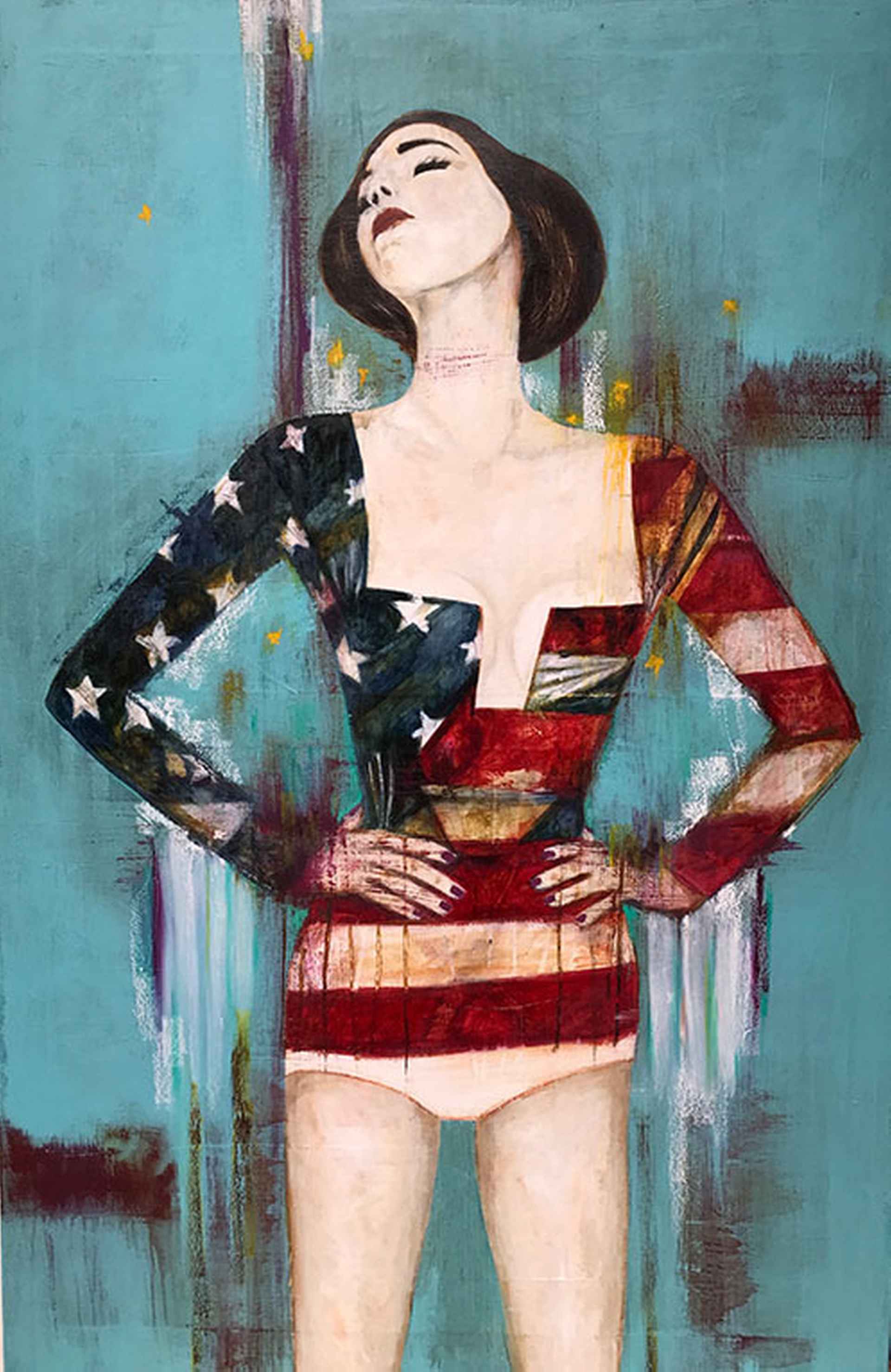
This work is part of Karenina Fabrizzi’s ‘The Body as a Container’ collection. A series of figurative works, we are presented with a lone female figure, combined with muted blues and dark imagery. These works refer to the body as a vessel or container for both physical elements such as organs and cells, but also our emotions and beliefs.
- Media: oil on canvas
- Tags: Painting figurative
- Dimensions: 97 x 146cm
- Price: SOLD
An example of Karenina Fabrizzi’s figurative work, ‘Pride (The Body as a Container)’ is part of the artist’s collection which questions the body’s role as a vessel. Fabrizzi perceives the body as a container for physical elements such as organs, tissue, and cells, but also a container for our emotions and beliefs. Fabrizzi is known for making works with dark connotations and merging the everyday with fantasy – this piece is no exception. Made using subtle, rich layers of oil paint, this piece is raw and hazy - a lone female figure emerges from a muted blue background, clad in a murky American flag. Perhaps influenced by Fabrizzi's time spent in New York, this visual statement is an unapologetic comment on patriotic pride - we're left to question the true meanings of this pride, and ask ourselves what it is exactly that we're proud of? “For me, our bodies, our structures, our minds, are containers for everything else – the things we are going through, our experiences in life, our thoughts, our feelings” The figure is reminiscent of the works of Egon Schiele - her limbs slightly distorted; she appears to be in her own world, head tilted back in a daze. What’s on her mind? Hands on hips, she stands strong, but there is an uncertain tone to the piece when analysed closer – are those blood on her hands? A scar on her neck? With abstracted blue hues and bloody reds, this vivid piece is both challenging yet striking – there is a fragility to this work which makes it at once delicate and dark. Though visually stunning, this piece is provocative and confrontational – it leaves us with many unanswered questions, we are left itching to know more.